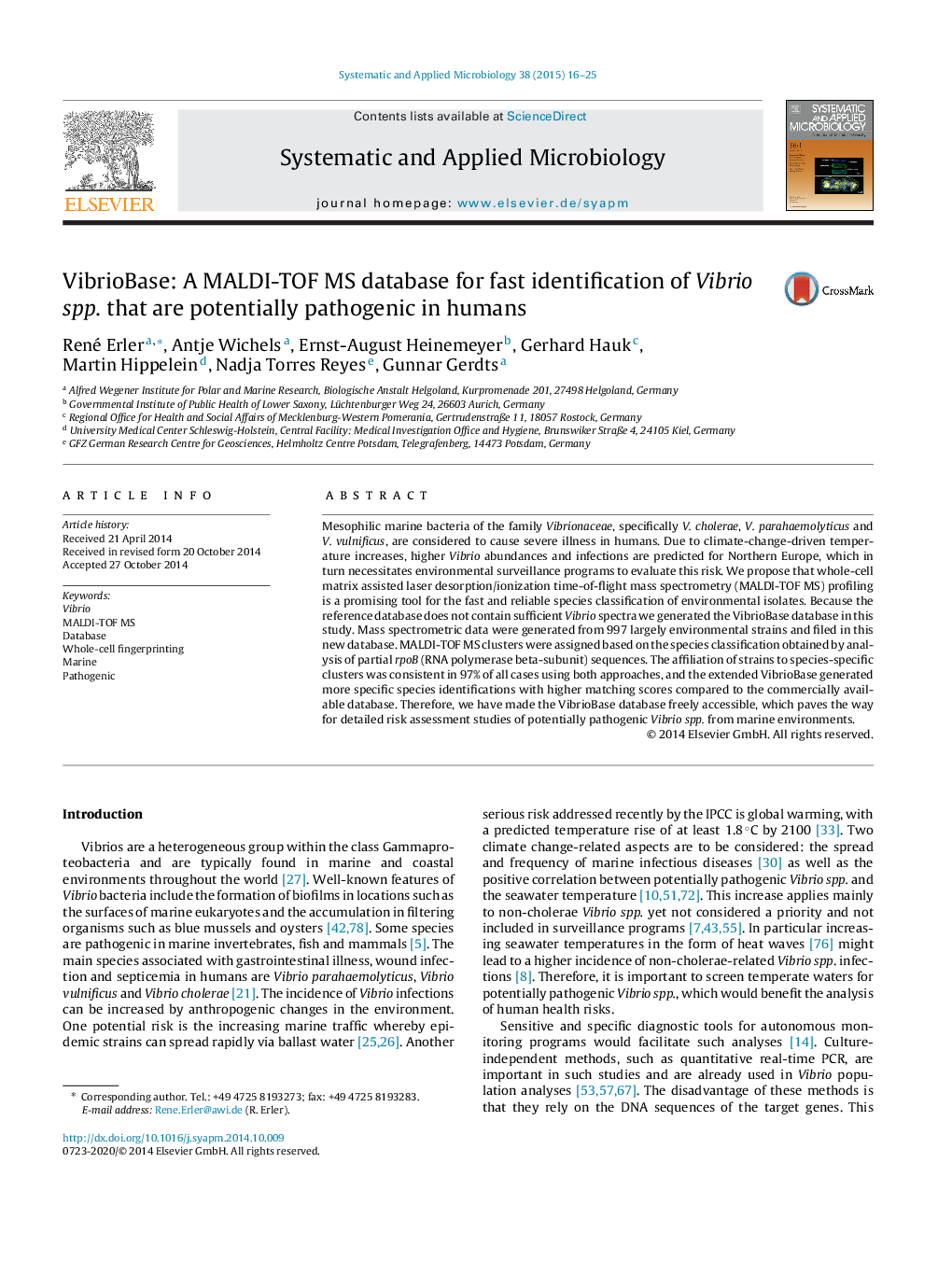| Article ID | Journal | Published Year | Pages | File Type |
|---|---|---|---|---|
| 2063036 | Systematic and Applied Microbiology | 2015 | 10 Pages |
Mesophilic marine bacteria of the family Vibrionaceae, specifically V. cholerae, V. parahaemolyticus and V. vulnificus, are considered to cause severe illness in humans. Due to climate-change-driven temperature increases, higher Vibrio abundances and infections are predicted for Northern Europe, which in turn necessitates environmental surveillance programs to evaluate this risk. We propose that whole-cell matrix assisted laser desorption/ionization time-of-flight mass spectrometry (MALDI-TOF MS) profiling is a promising tool for the fast and reliable species classification of environmental isolates. Because the reference database does not contain sufficient Vibrio spectra we generated the VibrioBase database in this study. Mass spectrometric data were generated from 997 largely environmental strains and filed in this new database. MALDI-TOF MS clusters were assigned based on the species classification obtained by analysis of partial rpoB (RNA polymerase beta-subunit) sequences. The affiliation of strains to species-specific clusters was consistent in 97% of all cases using both approaches, and the extended VibrioBase generated more specific species identifications with higher matching scores compared to the commercially available database. Therefore, we have made the VibrioBase database freely accessible, which paves the way for detailed risk assessment studies of potentially pathogenic Vibrio spp. from marine environments.
